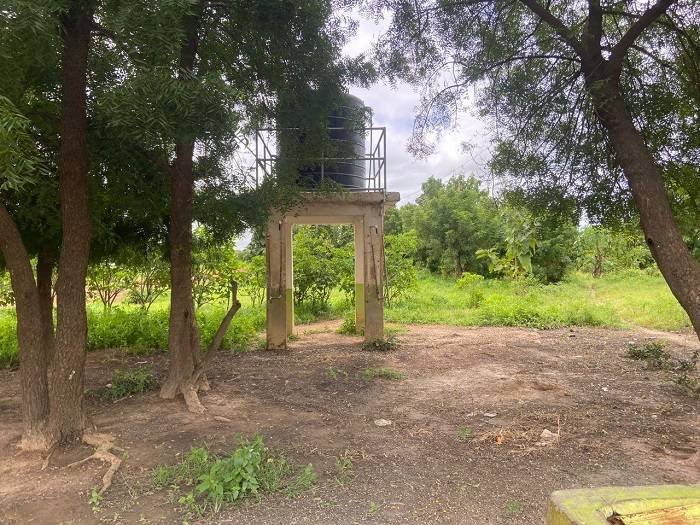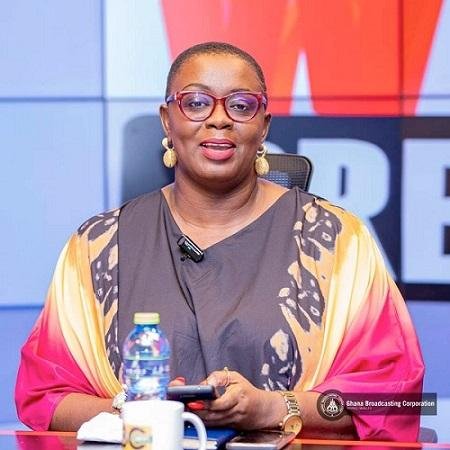Hot!
Water crisis in Dandafuri: Men struggle to find wives

● One of the non-functioning boreholes
Some men in Dandafuri, a township in the Wa Municipality of the Upper West Region are in a state of unhappiness over their inability to woo and marry women outside their community due to the water crisis in the town.
The community has five boreholes but none of them is functional and women have to travel a long distance to the next community to get water for the home.
This, according to the men the Spectator spoke to, ‘scare’ away prospective wives from other communities who rejects their marriage proposals with the inadequate supply of water as a reason.
“We’re in a difficult situation because of our water problem. When we propose to women outside the community, they refuses outright and would remark that ‘Dandafuri? No way; I cannot come and struggle for water everyday”, Mr Adamu Mahama, a community member told The Spectator newspaper during a community visit.
The Spectator observed that five nonfunctional boreholes were drilled by politicians without due consultation with the community, hence they were sited at areas with low water volumes, making it difficult to access water.
According to the Unit Committee Chairman of the community, Mr Sumaila Idris, most of the boreholes were drilled during the rainy season so much consultation was not done to get a good place to situate them.
He explained that one of the boreholes was even connected to solar but had not been functional in the last five years.
According to Madam Sadia, a woman in the community, they had to endure hours in queues at the only functioning borehole which had also broken down recently due to the pressure on it.
“We have the boreholes but you can pump forever and no water will come out; they are like white elephants because they are not serving their purpose so we mostly depend on rainwater during the rainy season.”
She said”: “even with the functioning one that has broken down, we sometimes go to the pump at 6am and return to the house at 10am.”
This situation, she said, was affecting their wards’ education especially females and younger children because the mothers and the older girls mostly went water hunting and return home late.
“By the time they go to school, it will be quite late because we come home late to prepare the smaller ones for school and the older females also help us to find water before they go to school”, she lamented and said the rainy season had been generous to them and lessoned their burden.
Even at the school, she explained that the absence of water affected good hygiene practices, such that hand washing was a thing of the past because there was no water for that.
The Chief of the community, Abdul Salam Issahaku sent an appeal to benevolent bodies to come and assist the community to fix the existing boreholes by drilling to the water table and become useful for the community.
From Lydia Darlington Fordjour, Dandafuri
Hot!
Let’s reintroduce Cultural Studies to complement educational reforms — Tourism Minister

Madam Abla Dzifa Gomashie, the Minister of Tourism, Culture and Creative Arts, has emphasised the importance of reintroducing Cultural Studies in schools as part of Ghana’s broader educational reform agenda.
She said Cultural Studies would complement existing efforts to reposition Science, Technology, Engineering and Mathematics (STEM) and Technical Vocational Education and Training (TVET) to promote digital literacy and expand Creative Arts education.
Speaking at the 2025 Homowo Festival of the people of Ningo-Prampram, held on the theme: “Education: The Best Legacy for our Children,” Madam Gomashie said cultural education was critical to national identity and development.
She noted that the festival’s theme aligned with the Government’s vision to transform education in Ghana and encouraged the youth to embrace it not only as a means of personal development but also as a way of preserving traditional values.
These values, including patience, wisdom, and hard work, were at the core of the Homowo celebration, the Minister said.
“Cultural festivals like Homowo are vital instruments for strengthening cultural identity, preserving historical memory, and fostering national unity. Additionally, festivals serve as platforms for educating the youth through storytelling, music, dance, and other traditional practices, while also providing opportunities for community engagement.”
Madam Gomashie highlighted the strong foundation that Ghana’s tourism was built on, which included culture, traditions, and the creative industry, collectively contributing to over GH¢4.8 billion to the economy.
“Festivals give tourists reasons to visit our country. Therefore, with the right infrastructure and the development of all the domains, the sector can do more than what has been recorded,” she added.
Mr Sam Nartey George, the Member of Parliament for Ningo-Prampram and Minister of Communication, Digital Technology and Innovation, commended the community for their vibrant participation in the festival. He announced plans for the construction of a new nursing training school in Ningo, aimed at expanding access to healthcare education in the area.
Nene Osroagbo Djangmah XII, Paramount Chief of Great Ningo Traditional Area; King Dr Tackie Teiko Tsuru II, Ga Mantse; Nene Tetteh Wakah III, Paramount Chief of the Prampram Traditional Area; Prof. Odaifio Welentsi III, Paramount Chief of the Nungua Traditional Area; Naana Dugbakuwor Dugba II, Paramount Queen Mother of Great Ningo; and Mr. Elvis Afriyie Ankrah, Special Envoy on Religion and Inter-Faith Affairs, who represented the Chief of Staff, were among dignitaries at the festival. -GNA
Hot!
Focus on more pressing issues like Galamsey, not hate speech – Ellen Ama Daaku to Mahama

An aide to former Vice President Dr. Mahamudu Bawumia,Ellen Ama Daaku has advised President John Dramani Mahama to shift his attention from social media hate speech to more urgent national issues such as illegal mining.
Speaking in an interview, she noted that the President’s recent comments about tracking the IP addresses of people who spread hate speech were unnecessary.
According to her, President Mahama must first define what he considers to be hate speech before seeking to punish people for it.
Ms. Daaku argued that the President himself had benefitted from hate speech and social media attacks in the past when he was in opposition.
She said even during his time in government, he described his opponents and their tribesmen in unpalatable terms, which later drew complaints from former President Nana Akufo-Addo to the Catholic Bishops’ Conference.
She stressed that harsh criticism of leaders on social media should not automatically be considered hate speech, adding that former leaders, including former President Nana Akufo-Addo had all been subjected to it.
“He is only feeling what Nana Akufo-Addo went through for eight years,” she remarked.
While acknowledging the need to regulate misconduct online, Ms. Daaku insisted that going after social media activists should not be a priority.
She noted that many political activists, including herself, had been insulted and attacked online but never called for arrests.
She concluded that President Mahama should focus his energy on solving pressing problems such as galamsey and the economy instead of concentrating on critics on social media.
By: Jacob Aggrey






